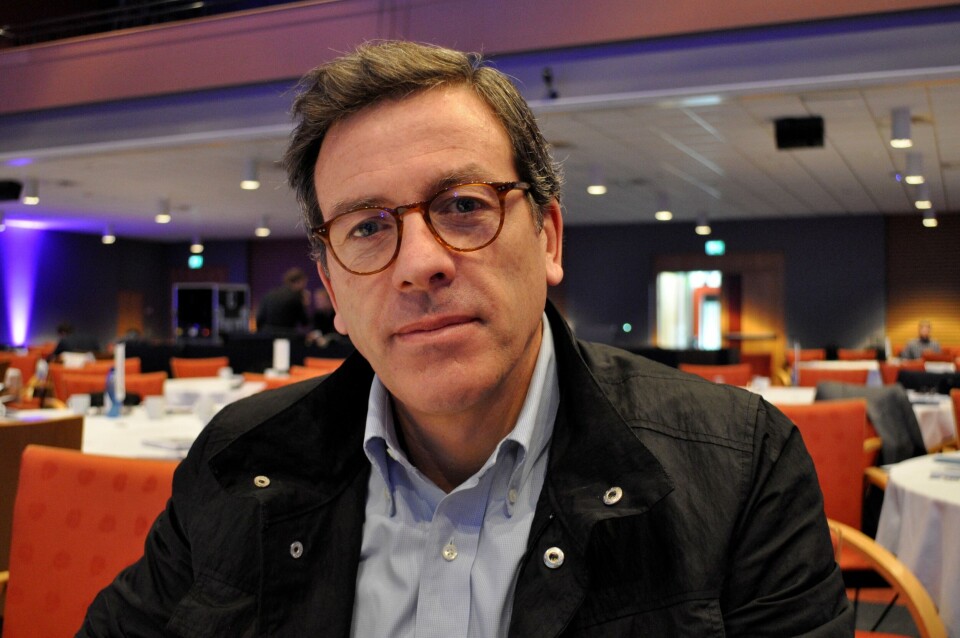
Long-term perspective needed
Ricardo García, CEO of Camanchaca, believes that the Chilean industry will be able to bounce back from its recent slump, due to a number of inherent competitive advantages.
His company was the fifth largest Chilean exporter of salmonids and fourth largest Chilean exporter of Atlantic salmon in 2016. During Aquavision in Stavanger he talked with Salmonexpert about the challenges faced by Chile's salmon producing industry.
What aspects would you highlight about aquaculture in Chile?
We have experienced major sanitary challenges and doubts regarding our regulatory system, but there are a few things that one should not lose sight of in a long-term perspective.
Chile has major competitive advantages in the two main aquaculture species farmed in our country: salmon and mussels. In addition, global demand for these products continues to be very strong and should continue that trend.
Problems caused by inefficient regulation, sanitary conditions or market issues are things that can be managed and solved.
You need to have an optimistic outlook, but in turn, also pragmatic, to seek for solutions in the short and long term, and thus achieve improved production standards.
Salmon executives, such as Alf Helge Aarskog, claim that if the country does not change its regulatory model, it will be harder for the local industry to succeed, what do you think about this?
Importing production models from another country does not necessarily mean a perfect formula, because ultimately you need to refine the regulation for the legal, cultural, geographical and economic conditions of each country. I think the Chilean regulations were originally well intended, but there is room for significant improvement, which can ultimately help transform Chile into a cost-efficient producer.
There are two key aspects that could be improved. Chile, along with other Latin American countries, suffers from excessive bureaucracy, unlike the Anglo-Saxon countries, and this has an impact on cost efficiency. We need to make it more efficient, not by being more relaxed about environmental care, but by adopting a more a pragmatic approach, which solves important problems and reduces bureaucracy.
The second aspect is to do with care and preservation of the environment and the health of the fish, where the focus of the current regulations, by farm or neighborhood, reduces efficiency and opportunities. Currently, for example, the vision and perspective is narrowed to a specific license or neighborhood, but we need to have a broader vision. I think there is an opportunity to improve this regulation and I hope that the authority has the will to do it.
How would you evaluate the marketing and branding efforts made about Chilean salmon and its reputation?This industry, which is so important to the Chilean economic sector, especially in the regions of Los Lagos and Aysen, is not a beloved industry today, is not appreciated and not respected. Although job creation and tax contributions are valued, it is not a beloved industry, and that's something we need to change. It is much more than a simple campaign and a marketing strategy, it is a sociological and cultural issue of long-term work. In that sense, I think the industry's efforts have been insufficient.
What do you think about the decision to publish antibiotics use by company?
It seems correct to me - Camanchaca has published its antibiotics use for a long time, among many other sustainability indexes. We are promoters of the Global Salmon Initiative (GSI) and of the publication of sustainability reports disclosing the number of antibiotic treatments. As GSI's Avrim Lazar said, we must be transparent because it will lead to long-term improvements.






















































